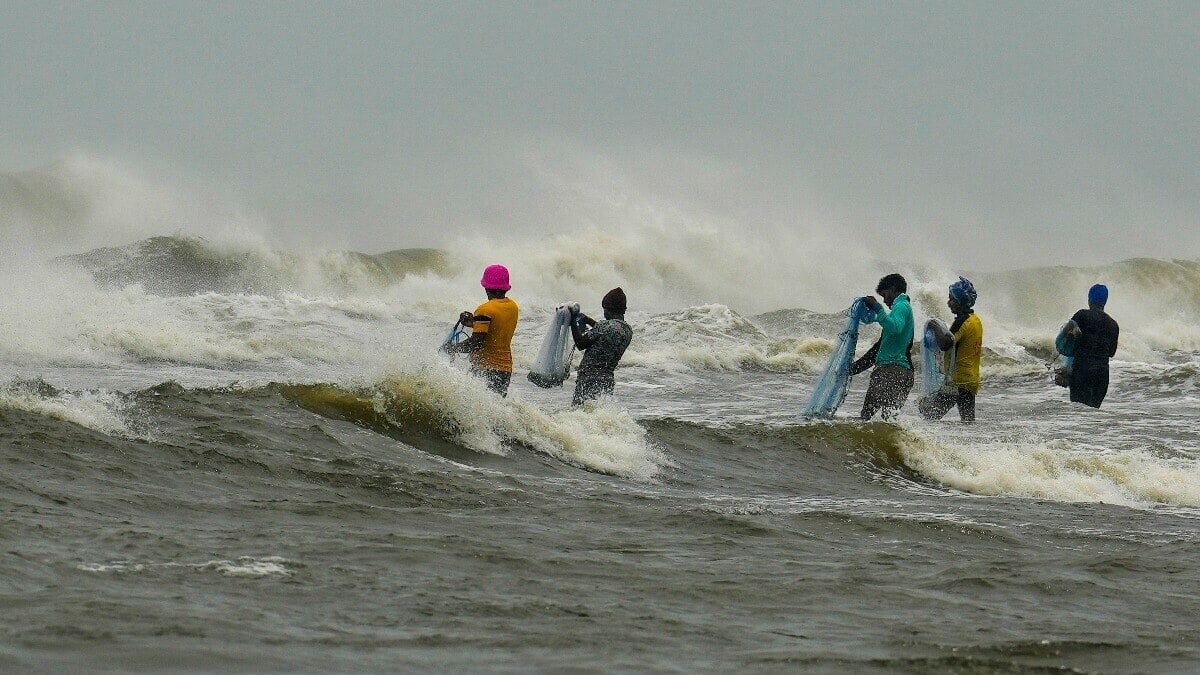
The S.C. facility where 43 monkeys escaped this month has a history of escapes, animal deaths and alleged mistreatment, according to inspection reports and complaints from animal rights advocacy groups.
Documents obtained by The State present a critical portrait of a company that has emerged as a leading provider of nonhuman primates for medical research. Alpha Genesis Inc. runs two facilities in South Carolina, one in Yemassee and the other on Morgan Island, that breed and raise monkeys for use in medical experiments.

While the company performs some experiments on the monkeys, the majority of the roughly 10,000 animals are raised to be provided to other labs. Alpha Genesis also provides monkey “bioproducts,” including plasma, blood and tissue. Since 2008, the company has been awarded contracts worth $113,467,970.
09 from the federal government, including a $4.6 million contract in 2020 to raise pathogen-free monkeys for COVID-19 related research. On Nov.
6, 43 female monkeys escaped from the Yemassee facility after an employee reportedly left a door open. While all but four of the monkeys have since been recaptured, the escape sparked local panic, jokes on late night talk shows and even calls from Republican U.S.
Rep. Nancy Mace of Charleston to investigate the facility . Despite millions in contracts, inspectors from the U.
S. Department of Agriculture repeatedly found unsanitary conditions and outlined many ways that monkeys have escaped, suffered devastating injuries and even died. A review of Agriculture Department inspection reports by The State newspaper from 2014 to 2024 turned up six reports outlining 19 citations for noncompliance.
Many of those citations describe multiple instances of starvation, dehydration and death by exposure. Alpha Genesis did not respond to The State’s request for comment. But in a statement to TV station Fox Carolina, Alpha Genesis CEO Greg Westergaard said that as the company cares for more than 10,000 monkeys, “adverse incidents occur in isolation.
” Those incidents are reported to the proper agencies, he said. The company is dedicated to maintaining “the highest standards of animal care,” the statement said But inspection reports from the Department of Agriculture show that although the facility has been consistently relicensed, escapes and deaths there go back at least a decade. In January 2014, three crab-eating macaques, a type of monkey commonly used in scientific testing, died of “cold stress,” which can include hypothermia and frostbite, after being sedated.
While the inspection reports from the Department of Agriculture do not say exactly how the animals died, in at least one case the monkey died after a door was left open during the exceptionally cold winter. In two unrelated incidents in July 2022, two monkeys died after their fingers became trapped in nonspecific “structures” in their enclosure, according to inspection reports. That September an infant monkey died of strangulation after it got stuck in the gauze wrapping being used to hold a water bottle in place.
In February 2016, one monkey died of internal injuries after it was shot with a tranquilizing dart following an escape. Escapes are not uncommon. In 2014, two employees were fired after they let 26 crab-eating macaques escape, according to inspection reports.
In 2016, 19 monkeys escaped through a bent portion of a tin wall . Between January and August 2022, inspectors found six separate instances where monkeys escaped, including two instances where groups of monkeys escaped through weaknesses in the chain link fence. The problem of escapes is endemic to facilities that raise monkeys, said Michael Budkie, executive director of Stop Animal Experimination Now.
“There’s no way to safely and ethically keep nonhuman primates in captivity for laboratory use,” Budkie said. Macaques, one of the main types of monkeys, typically roam an area of up to one square mile a day. That’s larger than the size of Alpha Genesis’ entire Yemassee campus, Budkie said.
A number of monkeys are seen in an outdoor enclosure at Alpha Genesis on July 15, 2020 that offers primates for biomedical research. The Beauf..
. His organization filed a complaint with the Department of Agriculture on Nov. 18, alleging that Alpha Genesis violated the 1966 Animal Welfare Act and urging regulators to investigate the facility.
Attached to the complaint was a trove of internal Alpha Genesis emails, photos and reports Budkie says was obtained from a whistleblower. While facilities with outdoor areas provide a better quality of life for the monkeys, those facilities also increase the chances monkeys will escape or get into fights with other monkeys, Budkie said. The monkeys are intelligent animals that are capable of coming up with creative ways to escape.
And while indoor cage facilities are more secure, they are often just a little larger than washing machines and are designed to be easy to sterilize, not for the psychological health of the primates, Budkie said. As a result, monkeys in captivity suffer intense psychological distress and can become aggressive towards other monkeys and engage in self-mutilating behavior, like pulling out their fur and biting their own tails and fingers, according to Budkie. Internal documents, including emails and reports, provided by a whistleblower outline incidents that do not appear to have been discovered by or brought to the attention of inspectors.
The internal documents describe moldy food and dangerous conditions, including a 2022 incident when four monkeys were left shivering after a broken hose sprayed them with water continuously for 17 hours. Other incidents not mentioned by the Department of Agriculture found in the internal documents include a case where a monkey that escaped from its enclosure died after its arm was torn off by the “alpha” of another group of monkeys. In another incident, a monkey’s arm was shattered following an escape.
Another monkey arm was amputated after being shot by a tranquilizer dart during an escape. One document listed 15 “cage containment” issues from 2020 to 2022, including fights, escapes and injuries. One email from 2022 described several starved monkeys who had lost up to 20% of their body weight.
“People aren’t doing their jobs in building 7,” the sender wrote in an email to 10 members of Alpha Genesis’s staff. “A vast majority of cages had minimal or no food whatsoever. It is not a coincidence that the thinnest monkeys had moldy feed/no food at all in their cages.
I will repeat, this is a serious animal welfare violation and if USDA were to come in and see this we’d be getting hit with a hefty penalty. This should not be taken lightly, and people need to be held accountable.” In a statement, a spokesperson for the Department of Agriculture confirmed that they had received Budkie’s complaint and were “reviewing them to determine whether there are Animal Welfare Act noncompliances we need to follow up on.
” In remarks to Fox Carolina, Westergaard questioned the veracity of the documents provided by the stop animal experimentation group. Westergaard said that he did not recognize at least one of the emails and “it is entirely possible that the photos were taken from another facility or were simply faked. I also cannot verify the authenticity of the remaining documents.
SAEN is opposed to all use of animals to advance medical research and has a lengthy history of distributing unverified and misleading documents to various media outlets.” In 2017, the Department of Agriculture fined Alpha Genesis $12,600 following a string of escapes, animal injuries and the death of one monkey. “I wouldn’t say it’s meaningless, but it’s in the neighborhood,” said Budkie.
Given the low amount compared to the company’s revenue, the fine is just part of the cost of doing business, Budkie said. Get local news delivered to your inbox! Community News {{description}} Email notifications are only sent once a day, and only if there are new matching items..










